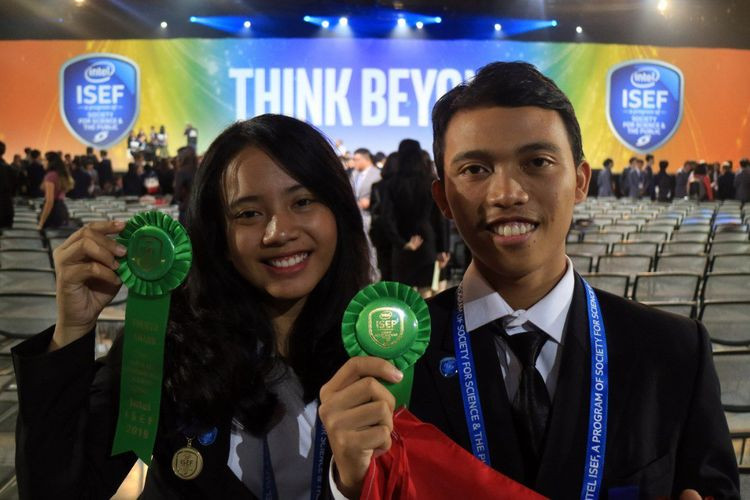
Two high school students from Denpasar, Bali, have received an award at the Intel International Science and Engineering Fair (Intel ISEF) for developing antifouling paint out of mangrove plants to prevent biofouling.
Biofouling occurs when marine organisms such as barnacles and algae accumulate on pipes and other underwater or wetted surfaces. This often damages ships as the layers formed by the organisms add weight to vessels, decreasing their speed.
I Made Wiratathya Putramas and Caroline Mathilda Nggebu from SMUN Denpasar 3 state high school came up with a solution to biofouling, using leaf extracts from two mangrove species, namely Rhizophora apiculata and Sonneratia alba, to develop antifouling paint. The two species can easily be found along Bali’s coasts.
“We choose mangroves because we know that the problem stems from the ocean, so the solution must come from the ocean as well,” Wiratathya said as quoted by kompas.com on Tuesday, adding that the mangrove species also contained particles that could help prevent biofouling.
Their research study, titled Potential Identification and Application of Rhizophora apiculata and Sonneratia alba as Bio Antifouling Agent for Antifoulant Paints, led them to receive the fourth Grand Award for Earth and Environmental: Life Sciences at the Intel ISEF 2019 in Phoenix, Arizona, the United States.
“There are many things that we still need to fix before putting this antifouling paint in the market, such as modifying its extraction method with different dissolving agents,” he said.
Wiratathya added that the paint still needed to undergo field testing to see if it could last in the long run.
“We still have to test this paint’s endurance to see how long its active chemicals can protect the vessels, and this test could take a long time, probably about two to five years,” he said. (dpk/kes)
[“source=thejakartapost”]




